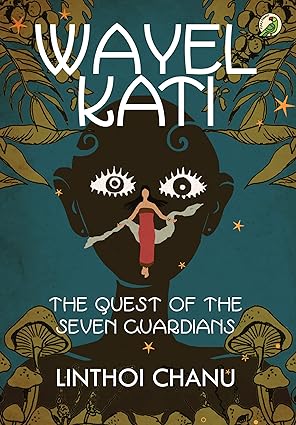Books To Look Out For This Summer!
Bring out your sunglasses and a reading mat, we are going to read this summer. Or perhaps turn your AC on full blast if you
When was the last time, you read a story that became real to you?\n\nWhen was it that you felt inspired, or went into a thoughtful silence .Take a moment, close your eyes and try to recall. Got any?\n\nWhat is it that made you remember this story? What made it so captivating, that this one stood out among so many others that you might have read.\n\nThey say poetry is when an emotion finds a thought, and a thought finds words. They say words can make you smile and bring tears. They make us love and they make us hate. There are words that break your heart, and words that heal it. Words evoke so many emotions. Emotions that bring memories, and hopes of the future. And that perhaps is what writing is about. Not only about the words we use, but the emotions they evoke.\n\nThey say good stories and storytelling lasts forever. And all good stories that have stood the test of time revolve around making people feel something, conjure real emotions. Great stories take readers on a journey, that makes them laugh, cry, angry, uncomfortable, or even pensive. It�s when they stop and think about the same events in their lives, however trivial it may be. Like watching the sunrise from behind the hills, or hearing your child speak those first words. Like finally passing the driving test, or getting that dream job.\n\nWhat exactly is it that evokes these emotions within us, or any reader. From what I�ve read, and heard, this is what I know:\n\n1. Perhaps, the most important factor is having protagonists the reader can identify with, or their stories we can relate to, or be emotionally involved with. The guy next door who orders in a pizza, or the girl who lost her parents in a car crash. The self-made millionaire or the new girl in the city with dreams of making it big! The estranged mother-son relationship and unconditional love of a pet. Stories of everyday struggles and decisions, of not finding a cab to work or having that perfect coffee, after a long day!\n\n2. When words create a visual impact, of being so descriptive and detailed, that the reader can imagine the scene being written about. Like the dark rooms and open fields, the eerie silences vs. a busy street, the muted browns and the lush greens, the little black dress and the rugged denims and sneakers.\n\n3. When multiple senses are invoked at the same time. The perfect combination of words used to describe the sights and the sounds, the smells and the tastes, the said, the unsaid and the felt. Like the slumped shoulders or a confident gait, the blinked back tears or a cackling laughter, the lazy drawls or a husky baritone, the aroma of coffee and damp muskiness, the gut wrenches and trembling hands, the cacophony of voices in the head and the pacing heartbeats, the world going around and coming to a standstill.\n\n4. Strong vocabulary always helps. The use of more �power� words, and a combination of mental, physical and internal responses to an emotional cue, and their transition. Slowing it down gives the reader time to let it sink in, without rushing. The smoother the progression, the more is the probability of striking a chord. Like the transition through shock, disbelief, denial and acceptance and the struggles of the protagonist in coping up with each one of these stages.\n\n5. A stimulus. The bigger or more unexpected the stimulus is, the stronger is the emotional response to it. Powerful, brief, Impactful. That one moment, or one word changes everything. Like Snape�s death and the unexpected revelation. 6. And lastly, avoiding overdoing emotional responses. Excessively used, they kill the character and appear clich�d, making them sound weak, immature and incapable. To create something like this, it�s important for a writer to feel that emotion, as its only when you feel it that you would be able to put it into words to express. It�s important to be emotionally involved with your characters, empathise or sympathise with them, and that is what would differentiate an event from a story.\n
Go ahead, bare that soul, as it�s only when you do so, that the real emotions would express themselves!
\n
\nAbout the author:\n\nRubina Aman – Fauji Brat. HR Manager by day. In love with reading, urdu language, travelling, sufi music and sunsets!\n\nConnect : Email��|Twitter
Bring out your sunglasses and a reading mat, we are going to read this summer. Or perhaps turn your AC on full blast if you

Once in a while you come across a book that has the power to pierce through your heart. A Monster Calls is one such book. Written by Patrick Ness, it is a story about a young boy with an ailing mother at home. It covers a range of somewhat difficult topics ranging from death to guilt.

How did you start writing ? I am not sure if I know exactly when I started writing. I’ve always loved to tell stories, and

Well the hard part is over, you finished writing the book , now you have some kind of a contract and the book will be

From the heart and hills of Manipur, the story revolves around seven guardians ‘chosen’ to retrieve the scissor of justice, the Wayel Kati. None of

The author narrates the story of Amit, a middle aged working professional, who faces the same struggles that so many of us in the corporate
You must be logged in to post a comment.


Get all latest news, exclusive deals and Books updates.